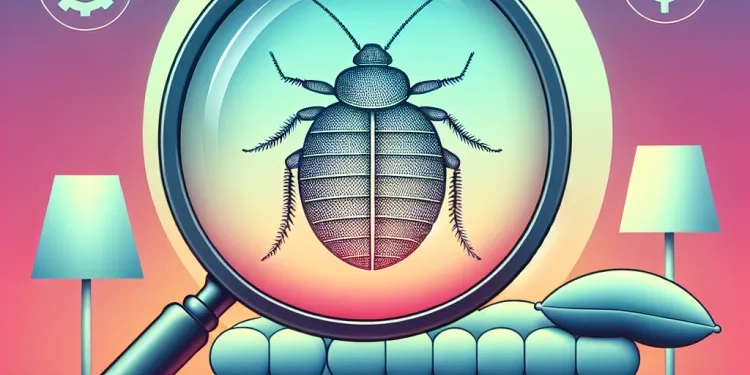
Find Help
More Items From Ergsy search
-
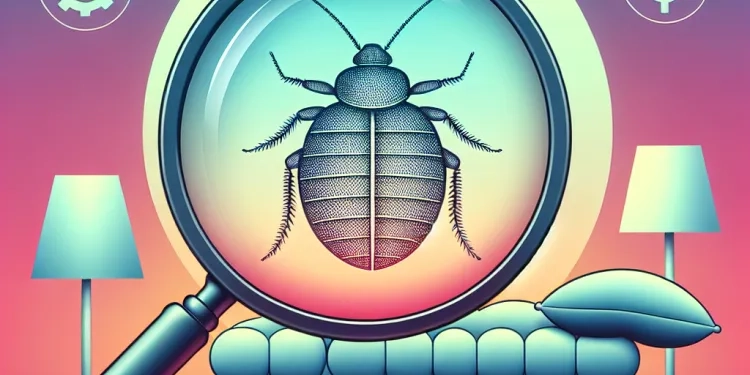
What are bed bugs?
Relevance: 100%
-
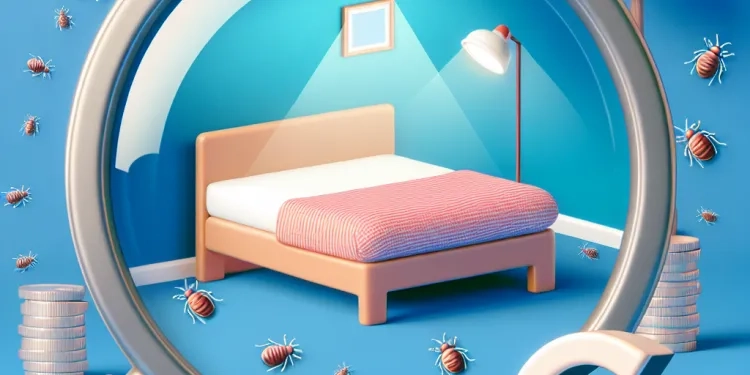
Do bed bugs only live in beds?
Relevance: 100%
-

Bed Bugs / bedbugs
Relevance: 100%
-
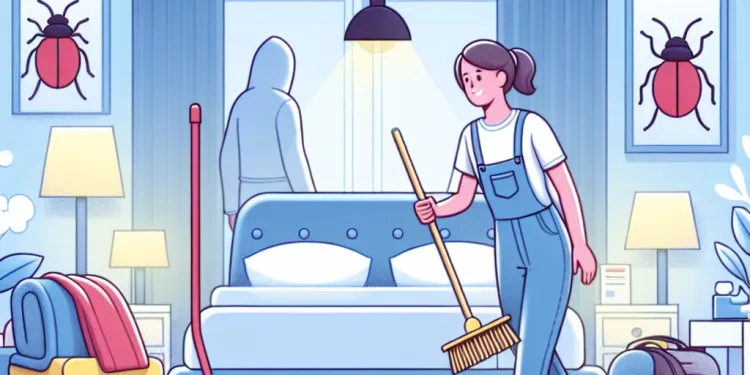
Are bed bugs dangerous?
Relevance: 99%
-
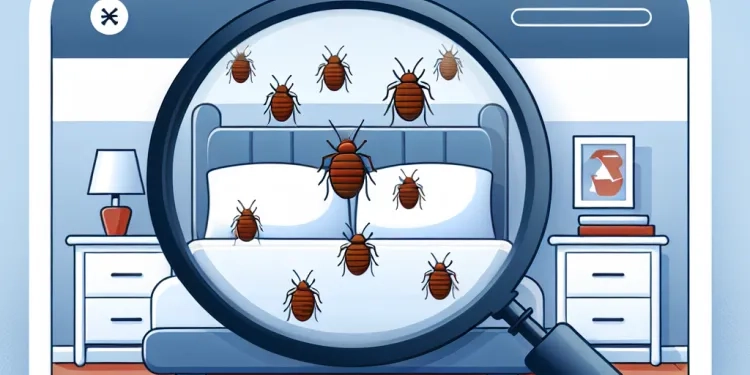
What are the signs of a bed bug infestation?
Relevance: 93%
-

Are there any natural remedies for bed bugs?
Relevance: 92%
-

Why are bed bugs so difficult to eliminate?
Relevance: 92%
-

How do bed bugs enter my home?
Relevance: 91%
-
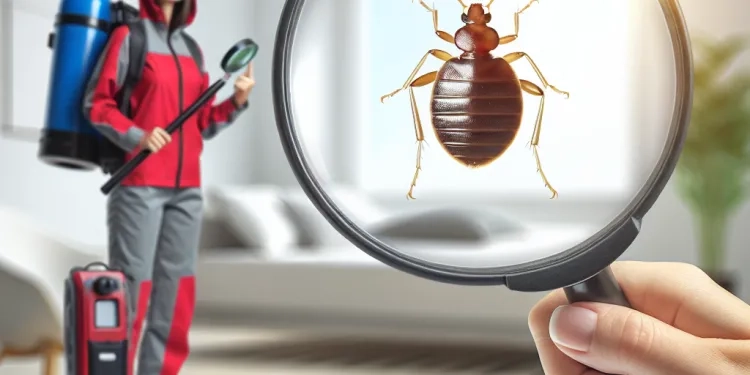
Can I get rid of bed bugs myself?
Relevance: 89%
-

Will disposing of my mattress get rid of bed bugs?
Relevance: 89%
-
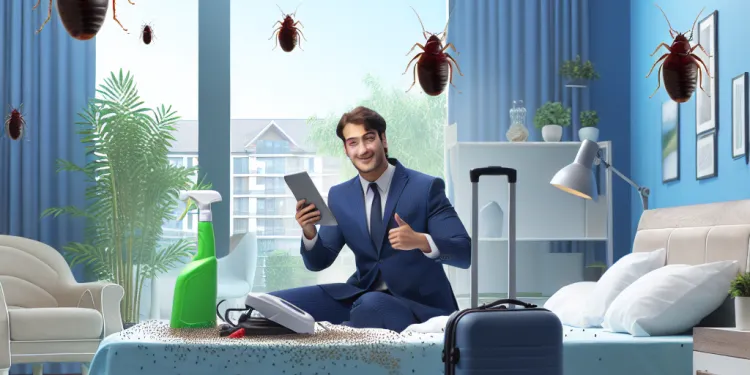
What should I do if I find bed bugs in my house?
Relevance: 88%
-
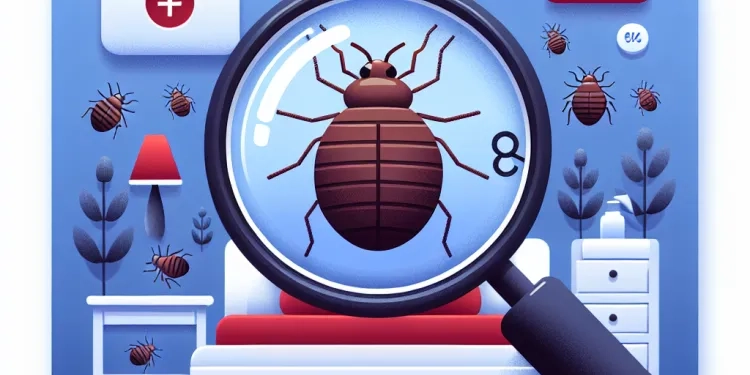
How can I tell if bites are from bed bugs?
Relevance: 86%
-

How can I prevent bringing bed bugs into my home?
Relevance: 86%
-

What items should I wash if I have bed bugs?
Relevance: 85%
-

How much does professional bed bug extermination cost in the UK?
Relevance: 82%
-
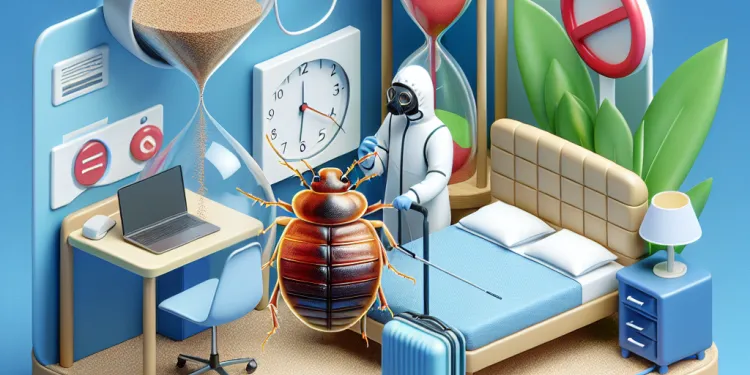
How long does a bed bug extermination process take?
Relevance: 79%
-
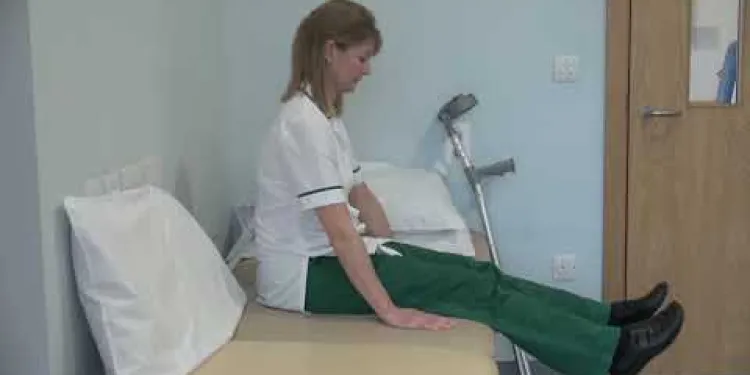
Hip replacement - getting into bed
Relevance: 44%
-
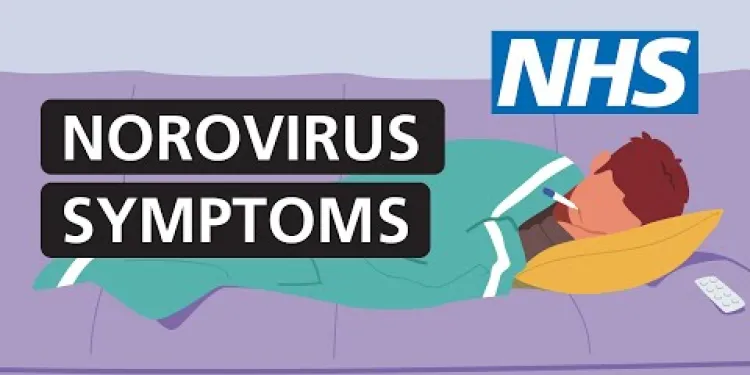
What is norovirus? (Diarrhoea and vomiting bug) | NHS
Relevance: 39%
-

MRSA Bug
Relevance: 34%
-
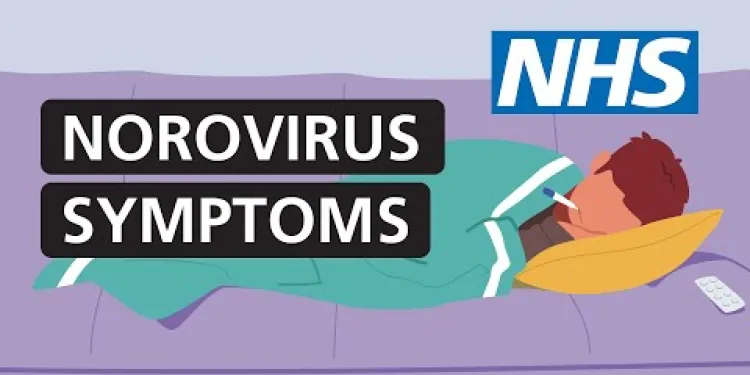
What is norovirus? (Diarrhoea and vomiting bug) | NHS
Relevance: 33%
-

How does screen time before bed specifically affect adolescents?
Relevance: 33%
-

How can I sleep comfortably during a heatwave?
Relevance: 18%
-

Top Tips to Help You Get a Good Nights Sleep
Relevance: 17%
-

What do pediatricians recommend about baby sleep pillows?
Relevance: 17%
-

Can reducing screen time improve sleep quality?
Relevance: 17%
-

How does screen time affect sleep quality?
Relevance: 16%
-
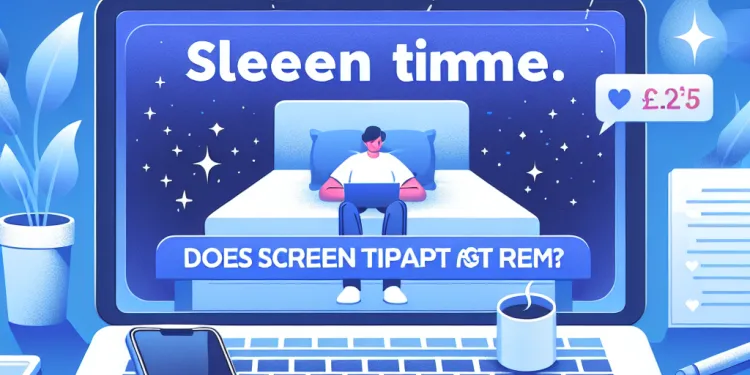
Does screen time impact REM sleep?
Relevance: 16%
-

How do you get scabies?
Relevance: 15%
-

Can HIV be transmitted through insect bites?
Relevance: 15%
-

Are there any screen time guidelines recommended for improving sleep?
Relevance: 15%
-

Does screen time affect both sleep onset and sleep maintenance?
Relevance: 14%
-

What is UV radiation?
Relevance: 14%
-

What are scabies?
Relevance: 14%
-

How should household items be cleaned after a scabies infection?
Relevance: 14%
-

Is scabies contagious?
Relevance: 14%
-

What are some tips for reducing screen time to improve sleep?
Relevance: 14%
-

What specific performance issues led to these refunds?
Relevance: 14%
-

What is the safest sleep environment for an infant?
Relevance: 13%
-

Can dust mites cause asthma and eczema?
Relevance: 13%
-

Can impetigo spread to other parts of my body?
Relevance: 13%
Understanding Bed Bugs
What Are Bed Bugs?
Bed bugs are small, nocturnal insects that feed on the blood of humans and animals. Scientifically known as Cimex lectularius, these pests are part of the Cimicidae family. They are wingless, reddish-brown in color, and approximately 5-7 millimeters in length. Bed bugs are notorious for being difficult to detect due to their small size and ability to hide in crevices and furniture.
Where Are Bed Bugs Found?
Bed bugs are commonly found in sleeping areas, particularly in mattresses, box springs, bed frames, and headboards. They can also inhabit cracks in walls, behind wallpaper, and other tight spaces. Hotels, hostels, and public transportation systems are some of the common locations where bed bugs are inadvertently transported. In the United Kingdom, the rise of international travel and densely populated urban areas has contributed to an increase in bed bug infestations.
How Do Bed Bugs Spread?
Bed bugs do not fly but can move quickly over floors, walls, and ceilings. They spread primarily through human activity, as they hitch rides on luggage, clothing, and personal belongings. This makes them highly mobile, allowing them to easily spread from place to place. It is important to note that an infestation is not indicative of cleanliness, as bed bugs are attracted to warmth and carbon dioxide rather than dirt or grime.
Signs of a Bed Bug Infestation
The presence of bed bugs can be identified by several signs, including small bloodstains on sheets and pillowcases, dark or rusty spots of excrement on mattresses and bedding, and a musty odor. Additionally, bites from bed bugs can leave itchy welts on the skin, typically arranged in lines or clusters. If you suspect an infestation, it is advisable to inspect bedding seams and surrounding areas thoroughly.
Preventing and Controlling Bed Bugs
Preventing bed bug infestations involves being vigilant, especially when traveling. Inspect hotel rooms on arrival, particularly the bedding and furniture. Upon returning home, wash and heat-dry clothes and inspect luggage thoroughly. For those facing an infestation, professional pest control services are often required to effectively eradicate bed bugs, as DIY methods may not completely eliminate them.
Conclusion
Bed bugs present a challenging problem in the UK due to their resilience and ability to spread. By understanding their habits and maintaining careful preventive measures, you can minimize the risk of an infestation. In the case of an outbreak, seeking professional assistance is the most reliable option for ensuring successful extermination.
Understanding Bed Bugs
What Are Bed Bugs?
Bed bugs are tiny bugs that come out at night. They bite people and animals to drink their blood. Bed bugs are reddish-brown and very small, about the size of an apple seed. They do not have wings and can hide in small places like cracks and furniture.
Where Are Bed Bugs Found?
Bed bugs like to live where people sleep, like in beds, mattresses, and pillows. They can also hide in tiny cracks in the walls or behind wallpaper. You might find them in hotels, buses, or trains because they can travel easily from place to place. In the UK, bed bugs have become more common because of more travel and crowded cities.
How Do Bed Bugs Spread?
Bed bugs cannot fly, but they move fast across floors, walls, and ceilings. They spread when they travel on bags, clothes, or other things people carry. Having bed bugs does not mean a place is dirty. They come for warmth and the air people breathe out, not because of dirt.
Signs of a Bed Bug Infestation
You can tell if you have bed bugs by looking for signs like tiny blood spots on sheets, dark spots on mattresses, or a bad smell. Bed bug bites can make your skin itchy and are often in lines or clusters. Check beds and nearby places carefully if you think you might have bed bugs.
Preventing and Controlling Bed Bugs
To keep bed bugs away, be careful when you travel. Look at hotel rooms closely, especially the bed. When you come home, wash and dry your clothes with heat and check your bags. If you find bed bugs, you might need a pest control expert to get rid of them because home solutions may not work.
Conclusion
Bed bugs are a tough problem in the UK because they spread easily. By learning about them and being careful, you can help stop them from coming into your home. If you find bed bugs, it is best to ask a professional for help to make sure they are all gone.
Frequently Asked Questions
What are bed bugs?
Bed bugs are small, oval insects that feed on the blood of humans and animals. They are known for being pests in homes, especially in bedding, furniture, and cracks and crevices.
How can I identify bed bugs?
You can identify bed bugs by their brownish colour, small size (about 5-7 mm when fully grown), and flat, oval shape. They often leave rust-coloured spots on bedding from their excrement.
Where do bed bugs come from?
Bed bugs can be brought into homes through luggage, clothing, used furniture, and other belongings. They can easily be picked up in places like hotels, public transport, and other high-traffic areas.
Can bed bugs cause disease?
While bed bugs are a nuisance and their bites can cause itching and lead to infection from scratching, they are not known to transmit diseases to humans.
How do bed bugs reproduce?
Bed bugs reproduce by laying eggs. A female bed bug can lay hundreds of eggs in her lifetime, and the eggs hatch into nymphs in about a week before maturing into adults.
What are the signs of a bed bug infestation?
Common signs include bites on the skin, small bloodstains on sheets, black or brown marks (excrement) on bedding, and a musty odour in the affected room.
How can I treat bed bug bites?
Bed bug bites can be treated with topical antihistamines to relieve itching and over-the-counter creams to reduce inflammation. Consult a doctor if symptoms persist.
How can I prevent bed bugs?
Prevent bed bugs by regularly vacuuming your home, washing bedding at high temperatures, using protective mattress encasements, and being cautious when bringing second-hand furniture into your home.
How do bed bugs spread?
Bed bugs spread by hitchhiking on objects like luggage, clothing, and furniture. They are often inadvertently carried from infested locations to new, uninfected areas.
Are bed bugs more active at a particular time?
Bed bugs are primarily nocturnal, meaning they are most active at night when their hosts are asleep. However, they can adapt and feed during the day if necessary.
How long do bed bugs live?
Under optimal conditions, bed bugs can live for about 6 to 12 months. However, their lifespan can vary based on environmental factors and availability of food.
What should I do if I suspect a bed bug infestation?
If you suspect a bed bug infestation, it is important to act quickly. Start by cleaning and decluttering the area, washing affected bedding and clothing, vacuuming thoroughly, and consider consulting a pest control professional.
How can professional pest control help with bed bugs?
Professional pest control services have expertise and tools to effectively identify, treat, and eliminate bed bug infestations using methods such as heat treatment, chemical pesticides, and more.
Do bed bugs only infest beds?
No, bed bugs can infest various areas, including carpets, furniture, curtains, and even electrical outlets. They hide in tiny crevices during the day and come out at night to feed.
Can I get rid of bed bugs on my own?
While it's possible to address small infestations with thorough cleaning and the use of store-bought insecticides, larger infestations typically require professional treatment to ensure complete eradication.
What are bed bugs?
Bed bugs are tiny bugs. They live in beds and other places people sleep.
They like to bite people when they are sleeping. The bites can be itchy.
If you have bed bugs, it's important to clean well and get help to remove them.
Using a magnifying glass can help you see them better.
Bed bugs are tiny bugs. They are shaped like ovals and eat the blood of people and animals. They like to live in houses. You can find them in beds, furniture, and small cracks.
How can I know if I have bed bugs?
Here is how you can tell if there are bed bugs:
- Look for tiny, dark spots on your bed. These could be bug droppings.
- You may see small, red bites on your skin. They often itch.
- Check for small, flat bugs in tiny cracks and corners. They are reddish-brown.
- Be on the lookout for tiny white eggs or baby bugs.
It can be helpful to use a magnifying glass or a flashlight for searching. If you are unsure, asking a grown-up to help is a good idea.
You can tell what bed bugs look like. They are brown, small, and flat. They are about as big as an apple seed (5-7 mm) when they are grown. They can leave rusty spots on your sheets from their poop.
If you need help reading, you can use tools like audiobooks or ask someone to read with you. Drawing pictures of what you read can also help you understand better.
Where do bed bugs come from?
Bed bugs are tiny bugs that can get into your house. They like to hide in beds, sofas, and clothes. Bed bugs come from outside. They can stick to your clothes or bags when you travel. They can also be in old furniture.
Here is a tip: When you get new clothes or things, check them first. Make sure there are no little bugs on them.
If reading is hard, it might help to read with a friend or family member. You can also use a digital tool that reads text out loud.
Bed bugs can come into your home on your clothes, luggage, or used furniture. You might get them from places like hotels, buses, or busy places.
Can bed bugs make you sick?
Bed bugs can be annoying. Their bites can make you itchy. If you scratch them, they might get infected. But don't worry, bed bugs do not spread diseases to people.
How do bed bugs have babies?
Bed bugs are small, flat insects that live in places like beds.
Here is how they make babies:
- A boy bed bug and a girl bed bug meet.
- The boy bed bug helps the girl bed bug make tiny eggs.
- The girl bed bug lays many tiny eggs.
- After a few days, baby bed bugs, called nymphs, hatch from the eggs.
- These nymphs grow up and become adult bed bugs.
Here is how you can learn more:
- Look at pictures of bed bugs to see what they look like.
- Watch videos about how bed bugs grow and make babies.
- Ask a teacher or an adult if you want to know more.
Bed bugs have babies by laying eggs. A mother bed bug can lay many eggs in her life. Baby bed bugs are called nymphs. The eggs take about one week to hatch. Nymphs grow into adult bed bugs.
If reading is hard, try using tools like audio books or text-to-speech. Pictures can also help explain things better. Use a ruler or finger to keep your place while reading.
How can you tell if there are bed bugs?
You might see these signs:
- Small, red bites on your skin.
- Little brown bugs in your bed.
- Tiny blood spots on your sheets.
- Black dots (bug poop) on your mattress or bed.
- A bad smell like old shoes.
If you are not sure, you can ask an adult for help. A magnifying glass can also help you look closer. If you have trouble reading, you can use a tool that reads the text out loud.
Signs to look for:
- Bites on your skin
- Small blood spots on your bed sheets
- Black or brown marks on your bed
- A funny smell in the room
If you need help, ask a friend or use a magnifying glass to see better.
How can I treat bed bug bites?
If you have bed bug bites, here is what you can do:
- Wash the bites with soap and water. This helps to clean the skin.
- Use a cool cloth or ice pack. This can stop the itching.
- Put anti-itch cream on the bites. You can ask an adult to help you find this at a pharmacy.
- Try not to scratch the bites. Scratching can make them worse.
If the bites do not get better, ask an adult to take you to a doctor.
Here are some things that can help you understand this better:
- Ask an adult to explain if you are confused.
- Look at pictures of bed bug bites online if you do not understand.
If bed bugs bite you, you can use special creams to help stop the itching. These creams are called antihistamines. You can also use creams from the store to help the swelling go down. If you still feel bad after trying these, talk to a doctor.
How can I stop bed bugs?
To stop bed bugs, do these things:
- Use a vacuum cleaner in your home often.
- Wash your bedding in hot water.
- Put a cover on your mattress.
- Be careful with old furniture from other people.
How do bed bugs move from place to place?
Bed bugs are tiny bugs that live off human and animal blood. They can be hard to see and often hide in mattresses, furniture, and even luggage. Bed bugs move from place to place by:
- Hitching a ride on people’s clothes, bags, or luggage.
- Crawling through small cracks in walls or floors.
- Moving from one room to another in a house or building.
To stop bed bugs, you can:
- Check your bags and clothes after staying in a hotel.
- Wash bedding and clothes in hot water.
- Use a flashlight to look for any bed bugs in your bed or furniture.
- Use special covers on mattresses to keep bed bugs out.
If you have trouble reading, try asking someone to read with you, or use a program that reads text aloud. You can also use pictures or videos to help understand more about bed bugs.
Bed bugs move around by catching a ride on things like bags, clothes, and furniture. People often carry them by mistake from places where there are lots of bed bugs to places where there aren't any.
Do bed bugs come out more at a certain time?
Bed bugs are little insects that come out mostly at night. They like night time because people are asleep then. But if they need to, they can be active during the day too.
How long do bed bugs live?
Bed bugs are tiny bugs that can live in your bed.
They can live for a long time if they have food to eat.
Usually, bed bugs can live for about 6 months to a year.
If they have food like your blood, they can live longer.
Bed bugs are good at hiding, so it's important to check your bed often.
Using a flashlight can help you see them better.
Bed bugs can live for about 6 to 12 months if everything is perfect for them. But how long they live can change. It depends on things like where they are and if they can find food.
What to do if I think there are bed bugs?
If you think you have bed bugs:
- Look for small, brown bugs or tiny white eggs on your bed and furniture.
- Wash your sheets, blankets, and clothes in hot water to kill bugs.
- Vacuum your mattress and floors to remove bugs and eggs.
- Call a pest control expert to help get rid of the bugs.
If you need, you can ask someone to help you do these things.
If you think you have bed bugs, act fast. First, clean up and tidy the area. Wash your sheets and clothes. Vacuum everything well. You can also ask an expert to help get rid of the bugs.
How can pest control experts help with bed bugs?
Bed bugs are tiny bugs that can hide in your bed and bite you. They are hard to get rid of on your own.
Pest control experts are people who know how to deal with these bugs. They have special tools and sprays to kill bed bugs and stop them from coming back.
If you have bed bugs, it is a good idea to ask a pest control expert for help. They will know the best way to make your home safe again.
To make reading easier, you can:
- Use a finger or a ruler to follow along the lines as you read.
- Ask someone to read the text with you and explain any tricky words.
- Take breaks if you feel tired and then return to reading.
Professional pest control services know how to find and get rid of bed bugs. They have special tools and ways to do this, like using heat or special bug-killing sprays.
Do bed bugs live only in beds?
No, bed bugs can also live in other places. They can hide in sofas, chairs, and even in the cracks of walls. Bed bugs like places where people sleep or sit for a long time.
Tip: Use a flashlight to look for bed bugs. They are small and brown. You can also use a vacuum to clean where they might hide.
No, bed bugs can live in many places like carpets, furniture, curtains, and even plugs. They hide in small cracks during the day. At night, they come out to eat.
Can I get rid of bed bugs by myself?
If you have a few bugs, you can clean carefully and use sprays from the store. If you have lots of bugs, call a bug expert to get rid of them all.
Useful Links
This website offers general information and is not a substitute for professional advice.
Always seek guidance from qualified professionals.
If you have any medical concerns or need urgent help, contact a healthcare professional or emergency services immediately.
- Ergsy carfully checks the information in the videos we provide here.
- Videos shown by Youtube after a video has completed, have NOT been reviewed by ERGSY.
- To view, click the arrow in centre of video.
- Most of the videos you find here will have subtitles and/or closed captions available.
- You may need to turn these on, and choose your preferred language.
- Go to the video you'd like to watch.
- If closed captions (CC) are available, settings will be visible on the bottom right of the video player.
- To turn on Captions, click settings .
- To turn off Captions, click settings again.
More Items From Ergsy search
-

What are bed bugs?
Relevance: 100%
-

Do bed bugs only live in beds?
Relevance: 100%
-

Bed Bugs / bedbugs
Relevance: 100%
-

Are bed bugs dangerous?
Relevance: 99%
-

What are the signs of a bed bug infestation?
Relevance: 93%
-

Are there any natural remedies for bed bugs?
Relevance: 92%
-

Why are bed bugs so difficult to eliminate?
Relevance: 92%
-

How do bed bugs enter my home?
Relevance: 91%
-

Can I get rid of bed bugs myself?
Relevance: 89%
-

Will disposing of my mattress get rid of bed bugs?
Relevance: 89%
-

What should I do if I find bed bugs in my house?
Relevance: 88%
-

How can I tell if bites are from bed bugs?
Relevance: 86%
-

How can I prevent bringing bed bugs into my home?
Relevance: 86%
-

What items should I wash if I have bed bugs?
Relevance: 85%
-

How much does professional bed bug extermination cost in the UK?
Relevance: 82%
-

How long does a bed bug extermination process take?
Relevance: 79%
-

Hip replacement - getting into bed
Relevance: 44%
-

What is norovirus? (Diarrhoea and vomiting bug) | NHS
Relevance: 39%
-

MRSA Bug
Relevance: 34%
-

What is norovirus? (Diarrhoea and vomiting bug) | NHS
Relevance: 33%
-

How does screen time before bed specifically affect adolescents?
Relevance: 33%
-

How can I sleep comfortably during a heatwave?
Relevance: 18%
-

Top Tips to Help You Get a Good Nights Sleep
Relevance: 17%
-

What do pediatricians recommend about baby sleep pillows?
Relevance: 17%
-

Can reducing screen time improve sleep quality?
Relevance: 17%
-

How does screen time affect sleep quality?
Relevance: 16%
-

Does screen time impact REM sleep?
Relevance: 16%
-

How do you get scabies?
Relevance: 15%
-

Can HIV be transmitted through insect bites?
Relevance: 15%
-

Are there any screen time guidelines recommended for improving sleep?
Relevance: 15%
-

Does screen time affect both sleep onset and sleep maintenance?
Relevance: 14%
-

What is UV radiation?
Relevance: 14%
-

What are scabies?
Relevance: 14%
-

How should household items be cleaned after a scabies infection?
Relevance: 14%
-

Is scabies contagious?
Relevance: 14%
-

What are some tips for reducing screen time to improve sleep?
Relevance: 14%
-

What specific performance issues led to these refunds?
Relevance: 14%
-

What is the safest sleep environment for an infant?
Relevance: 13%
-

Can dust mites cause asthma and eczema?
Relevance: 13%
-

Can impetigo spread to other parts of my body?
Relevance: 13%


